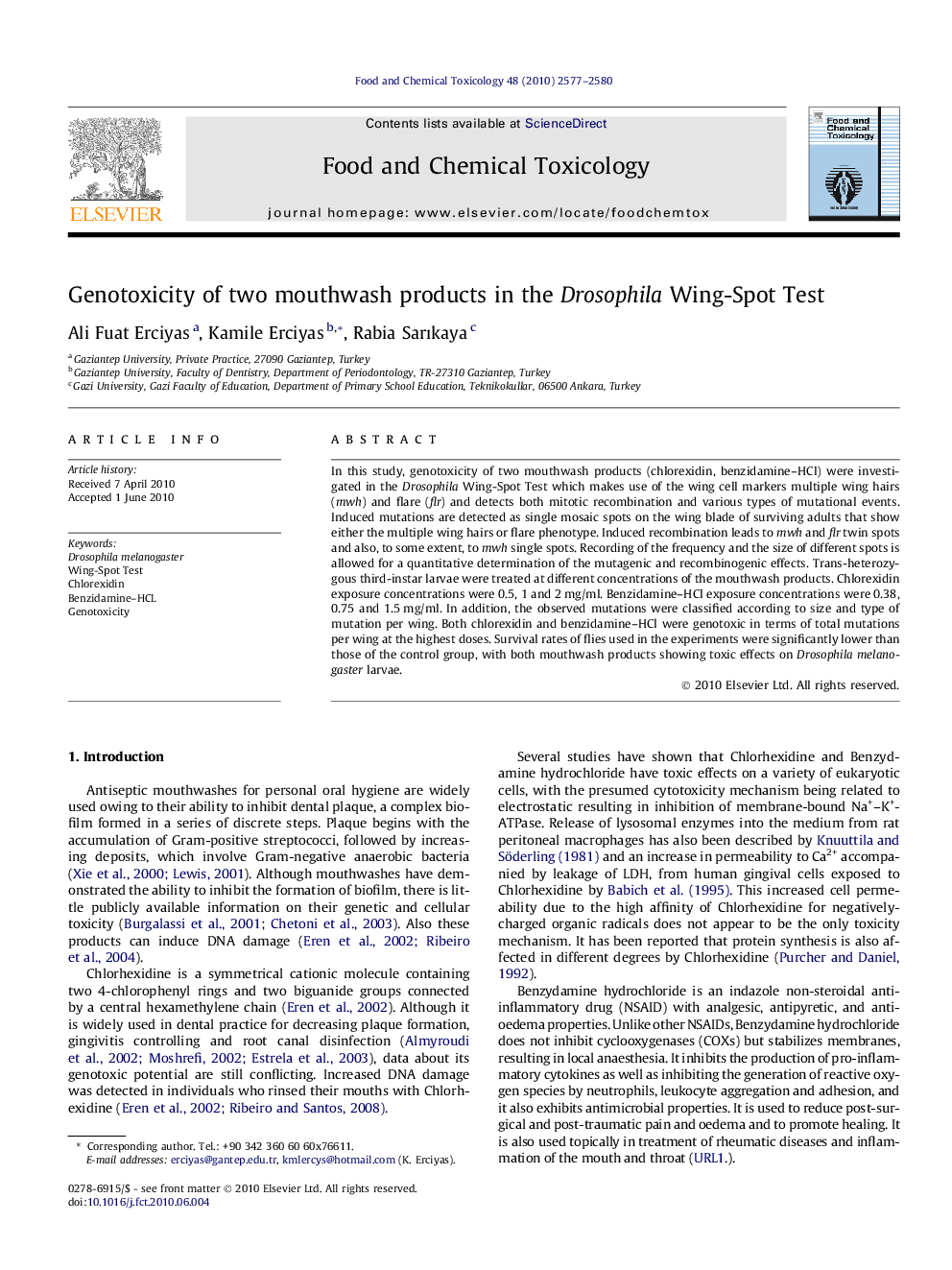| کد مقاله | کد نشریه | سال انتشار | مقاله انگلیسی | نسخه تمام متن |
|---|---|---|---|---|
| 2585558 | 1130876 | 2010 | 4 صفحه PDF | دانلود رایگان |

In this study, genotoxicity of two mouthwash products (chlorexidin, benzidamine–HCl) were investigated in the Drosophila Wing-Spot Test which makes use of the wing cell markers multiple wing hairs (mwh) and flare (flr) and detects both mitotic recombination and various types of mutational events. Induced mutations are detected as single mosaic spots on the wing blade of surviving adults that show either the multiple wing hairs or flare phenotype. Induced recombination leads to mwh and flr twin spots and also, to some extent, to mwh single spots. Recording of the frequency and the size of different spots is allowed for a quantitative determination of the mutagenic and recombinogenic effects. Trans-heterozygous third-instar larvae were treated at different concentrations of the mouthwash products. Chlorexidin exposure concentrations were 0.5, 1 and 2 mg/ml. Benzidamine–HCl exposure concentrations were 0.38, 0.75 and 1.5 mg/ml. In addition, the observed mutations were classified according to size and type of mutation per wing. Both chlorexidin and benzidamine–HCl were genotoxic in terms of total mutations per wing at the highest doses. Survival rates of flies used in the experiments were significantly lower than those of the control group, with both mouthwash products showing toxic effects on Drosophila melanogaster larvae.
Journal: Food and Chemical Toxicology - Volume 48, Issue 10, October 2010, Pages 2577–2580